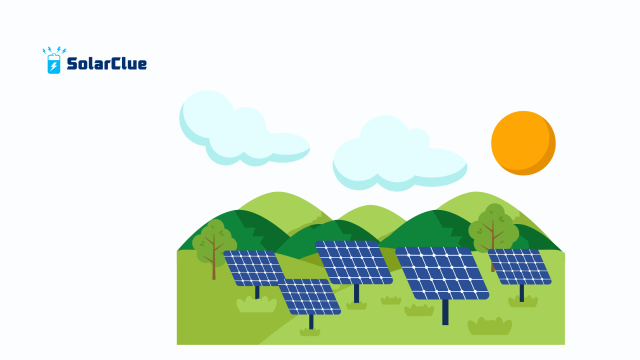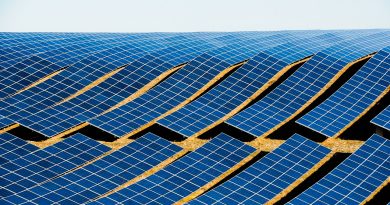How Many Solar Panels Are Needed to Produce 1 kWh of Power?
As solar technology becomes increasingly accessible and essential, many homeowners and business owners ask the same question—how many solar panels to produce 1 kWh of electricity? This isn’t just about numbers; it’s about making informed, cost-effective, and sustainable energy decisions. Whether you’re looking for a solar panel for home, or evaluating solar energy for 1 kWh, this comprehensive guide provides everything you need to know to calculate solar panels for 1 kWh of power.
Table of Contents
- 1 Understanding What 1 kWh Means in Solar Energy
- 2 Average Solar Panel Output Per Day
- 3 How Many Solar Panels to Produce 1 kWh?
- 4 Factors Influencing 1 kWh Solar Panel Requirement
- 5 Best Type of Solar Panel for 1 kWh Generation
- 6 Using a Solar Panel Output Calculator
- 7 Cost of Solar Panel for 1 kWh Output
- 8 Step-by-Step Guide to Calculate Solar Panels for 1 kWh
- 9 Real-Life Example of 1 kWh Setup
- 10 How Much Space is Needed?
- 11 Battery Backup for 1 kWh System
- 12 Maintenance Tips for Better Efficiency
- 13 Solar Panel Sizing and Load Balancing
- 14 Solar Panel Setup for Expanding Usage
- 15 Understanding Solar Panel kWh Ratings
- 16 Off-Grid vs On-Grid for 1 kWh Solar Systems
- 17 Is 1 kWh Enough? Scaling for Daily Energy Needs
- 18 Environmental and Economic Impact
- 19 FAQs: 1 kWh Solar Panel Requirements
- 20 Conclusion: Your Solar Journey Starts with 1 kWh
Understanding What 1 kWh Means in Solar Energy
Before diving into numbers, it’s crucial to understand what 1 kWh (kilowatt-hour) actually represents. One kWh is the energy consumed by a device drawing 1,000 watts over one hour. For example, a 100-watt bulb running for 10 hours uses 1 kWh of energy. Understanding this measurement helps determine your needs and design an efficient solar panel system for 1 kWh production.
Average Solar Panel Output Per Day
Most residential solar panels generate between 250W to 400W under standard test conditions. On average, one solar panel output is about 1.2 to 1.6 kWh per day depending on solar panel efficiency, geographic location, orientation, and local weather conditions. So when you aim to generate 1 kWh with solar panels, you’re looking at this production capacity.
How Many Solar Panels to Produce 1 kWh?
To generate 1 kWh per day, you typically need 1 to 2 solar panels, depending on their wattage and efficiency. A single 350W panel under optimal conditions can produce around 1.4 kWh per day.
Number of solar panels for 1 kWh = 1,000 Wh / (Panel Wattage × Sunlight Hours)
Let’s break it down:
- 1 kWh = 1,000 Wh
- Average sunlight = 4 hours/day (in most Indian cities)
- Panel wattage = 300W
So: 1,000 Wh ÷ (300 × 4) = 0.83 → 1 panel
Factors Influencing 1 kWh Solar Panel Requirement
1. Geographic Location
India receives an average of 4-6 sunlight hours/day. Locations like Rajasthan receive more sun, requiring fewer panels to reach 1 kWh solar panel output.
2. Solar Panel Efficiency
High-efficiency panels like monocrystalline offer more energy production from solar panels, reducing the number required for 1 kWh.
3. Seasonal Variability
During monsoons and winter, solar output decreases, affecting 1 kWh solar panel requirement.
4. Roof Angle & Orientation
Proper tilt and direction (usually south-facing in India) improve solar panel system for 1 kWh performance.
Best Type of Solar Panel for 1 kWh Generation
When choosing the best solar panel, look for:
- High wattage (350W or more)
- Certified efficiency (18–22%)
- Tier-1 solar brands
Monocrystalline panels are highly recommended for their superior solar panel efficiency for 1 kWh goals.
Visit solarclue.com to explore top-tier panel options tailored for your needs.
Using a Solar Panel Output Calculator
A solar panel output calculator simplifies planning by letting you input location, roof size, and panel specs. It helps estimate how many solar panels are needed for 1 kWh generation daily. With this data, homeowners can estimate energy savings and payback periods.
Cost of Solar Panel for 1 kWh Output
Solar panel cost varies, but generally:
- ₹25,000 – ₹35,000 per panel (350W to 400W)
- Installation, inverter & other accessories may total ₹50,000 – ₹70,000 for a basic 1 kWh solar panel installation
This one-time investment can significantly reduce electricity bills. Explore pricing details and latest offers at blog.solarclue.com.
Step-by-Step Guide to Calculate Solar Panels for 1 kWh
- Identify your daily electricity consumption
- Use regional sunlight data (avg 4 hours/day)
- Choose panel wattage (e.g., 350W)
- Calculate: 1,000 ÷ (350 × 4) = 0.71 → Round up to 1 panel
For larger needs, just multiply accordingly. E.g., for 5 kWh/day, you’ll need around 5 panels.
Real-Life Example of 1 kWh Setup
Let’s say you want to run a fan (75W), a TV (100W), and LED lights (125W) for 5 hours a day. That’s 1 kWh daily.
- One 350W monocrystalline panel
- Inverter of at least 1 kW capacity
- Battery (optional for off-grid use)
- Mounting & installation
This simple setup will meet your needs reliably and efficiently.
How Much Space is Needed?
Each panel typically requires 1.6–2 m². For 1 kWh solar energy panels, 1–2 m² is adequate, making it feasible for most rooftops.
Battery Backup for 1 kWh System
If you want uninterrupted supply during cloudy days or at night, consider a 1.2–1.5 kWh battery storage with lithium-ion or lead-acid options.
Maintenance Tips for Better Efficiency
- Clean panels regularly to maintain optimal solar panel efficiency
- Check for shading from trees or nearby buildings
- Monitor system performance monthly
Solar Panel Sizing and Load Balancing
The right solar panel size for 1 kWh generation also depends on your electricity usage patterns. It’s important to calculate not only the power draw of appliances but how long they’re used each day. A solar panel calculator for 1 kWh load will often recommend slightly more capacity to ensure consistent energy during peak usage or cloudy days.
Solar Panel Setup for Expanding Usage
One of the advantages of a 1 kWh solar panel setup is scalability. You can start small and expand based on demand. Adding extra panels, a larger inverter, and batteries allows your system to evolve without replacing the existing setup.
Understanding Solar Panel kWh Ratings

Every solar panel is rated by wattage, but energy output is measured in kWh. The understanding solar panel kWh rating is essential—it’s how much energy it can produce over time. For example, a 350W panel working for 4 hours/day delivers 1.4 kWh/day. This helps you plan based on solar panel kWh per day needs.
Off-Grid vs On-Grid for 1 kWh Solar Systems
If you’re in a location with frequent outages or no grid connection, an off-grid 1 kWh solar panel system with battery backup is ideal. However, grid-tied systems allow you to use solar power during the day and rely on the grid at night—no batteries required, reducing solar panel cost.
Is 1 kWh Enough? Scaling for Daily Energy Needs
A single 1 kWh solar panel output might be enough for a small household or supplemental power, but for full household usage, most people need 3–5 kWh per day. Scaling is simple—multiply your kWh requirement by the number of days and adjust the panel count accordingly.
Environmental and Economic Impact
Switching to solar isn’t just eco-friendly; it’s financially smart. With increasing electricity tariffs, investing in solar panels for 1 kWh electricity now gives years of savings. Moreover, it supports India’s green energy goals.
FAQs: 1 kWh Solar Panel Requirements
Q1. How much power 1 kWh solar panel produces daily?
A 350W panel can produce approx. 1.4 kWh/day in optimal sunlight.
Q2. Can I install just one panel for 1 kWh?
Yes, in sunny areas with efficient panels.
Q3. What is the efficiency of solar panels for 1 kWh systems?
Between 17%–22% based on panel type.
Q4. What is the solar panel size for 1 kWh?
One 350W panel is about 1.9 m². So, 1–2 m² is sufficient.
Q5. How do I start with a 1 kWh installation?
Begin with a load assessment, then consult with trusted suppliers like SolarClue.
Q6. Is it possible to increase the output later?
Yes. Solar systems are modular—you can expand by adding panels and upgrading inverters.
Q7. Can I use a solar panel calculator for 1 kWh estimation?
Absolutely. It’s an efficient way to determine panel count based on location and needs.
Q8. How many solar panels to generate 1 kWh in low-sunlight areas?
Likely 2 panels due to reduced sunlight. Always consult local solar experts.
Q9. Is 1 kWh enough for a small home?
Yes, it can cover essentials like lighting, fan, TV, and mobile charging.
Q10. Can I get government subsidy for 1 kWh system?
Yes. Under India’s PM Surya Ghar scheme and state-level subsidies, users get financial aid.
Conclusion: Your Solar Journey Starts with 1 kWh
Whether you’re powering lights, appliances, or gadgets, understanding the 1 kWh solar requirements helps you plan better. From choosing the best solar panel to using a solar panel calculator for 1 kWh, this guide simplifies your path to sustainable living. Start small, think big, and watch your energy bills shrink. Want more tips like this? Dive into solar insights at blog.solarclue.com and light up your home with the sun!
🌞 Curious to start your solar journey today? Head over to solarclue.com and explore customized solar solutions made just for you!




